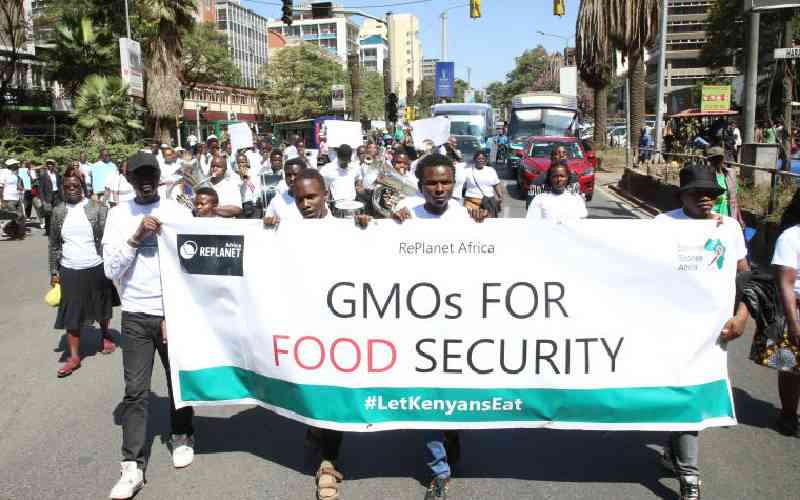×
The Standard e-Paper
Stay Informed, Even Offline

Science researchers, students, academicians and farmers take part in a peaceful procession in support of the use of GMO foods in Kenya. The demo was held in Nairobi on February 10, 2023. [Stafford Ondego, Standard]
The government is free to import genetically modified food after the Environment and Lands Court ruled that there is no evidence of health risk to the public and environment.